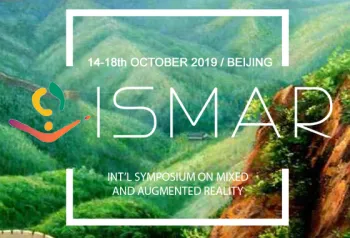Virtual Reality (VR) is becoming increasingly important due to its advantages as an immersive technology for learning applications. Next to being used in fields like manufacturing, transportation, and communication, developers have recognized the potential of VR for human resources development. To explore VR as a training tool, Fabrizio Palmas, Jakub Cichor, David Plecher, and Prof. Gudrun Klinker set out to investigate the effectiveness and acceptability of a VR-based Speech Training (VR-ST).
Virtual human training programs offer exposure to difficult situations without supervision in a safe and controlled environment by simulating nuanced interpersonal situations and allowing users to practice new skills and applying them in real-life situations. Practice in a controlled virtual environment also allows for direct objective measurements of user development and the identification of strengths and weaknesses. In a user study with 44 participants, a positive tendency in the acceptance and effectiveness of the VR-ST was observed. The authors discuss their findings and promising avenues for future research.
